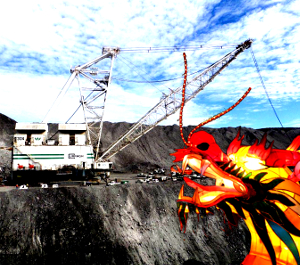Stirrings over Chinese FIRB bring "mature" call
 The Federal Government appears to be preparing to relax the rules for foreign investment from China, but one Nationals MP says changes must come from a “mature discussion”.
The Federal Government appears to be preparing to relax the rules for foreign investment from China, but one Nationals MP says changes must come from a “mature discussion”.
“Investment in another country is a sign of trust,” Prime Minister Tony Abbott told a business function in Shanghai over the weekend.
“We now appreciate that most Chinese state-owned enterprises have a highly commercial culture. They're not the nationalised industries that we used to have in Australia,” he said.
Under the current rules, any proposed investment by foreign state-owned firms falls under the scrutiny of the Foreign Investment Review Board.
The Coalition relied on a platform promising a closer watch on foreign private purchases in the lead up to the election last year, in addition to the zero-threshold trigger for scrutiny of purchases by state-owned enterprises.
The current cut-off for FIRB review is $248 million, though the Coalition’s two free trade agreements recently signed with Korea and Japan locked in thresholds of $15 million for land, and $53 million for agribusiness.
Many are concerned about potential changes, especially those who represent or have interests in the agricultural industry.
There has long been a fear that allowing foreign investment in large tracts of land somehow degrades the sovereignty of locals.
But the federal LNP member for Maranoa in western Queensland, Bruce Scott, does not hold the same concern.
“I think it's time we had that mature discussion, and I'm open to agricultural partnerships in particular, and I think that's the key to what I'm saying,” he said.
“It's timely that, as the PM has indicated, that if we are to negotiate an agreement with China we're going to have to look at some of the ways we deal with that in relation to state-owned assets in China.
“Against the backdrop of the Agricultural White Paper and the review we're doing about how we can develop northern Australia, and we're serious about these two areas, we're going to need foreign investment.”
But the Nationals party member with some of the strongest links to the Prime Minister has been vocally opposed to foreign investment proposals in the past.
Agriculture Minister Barnaby Joyce has slammed the sale of southern Queensland's Cubbie Station to a Chinese-Japanese-Australian consortium, and was strongly against American Archer Daniels Midland's ultimately failed bid to buy GrainCorp.
But Australia would not be the nation it is without a long-running stream of foreign capital flowing in, Mr Scott says.
“I think we've got to look at what history tells us when it comes to foreign investment and how it can be beneficial to Australia, and we've got to make sure that we send a message that we are open for business.”







 Print
Print